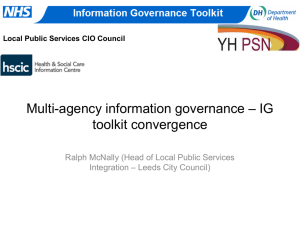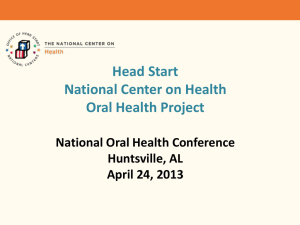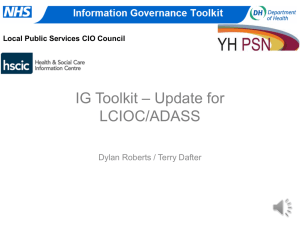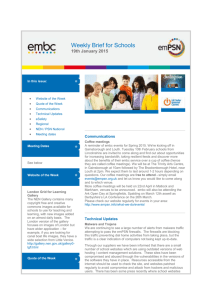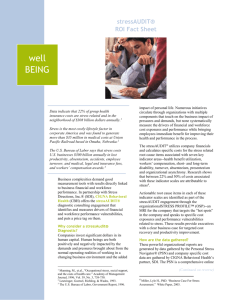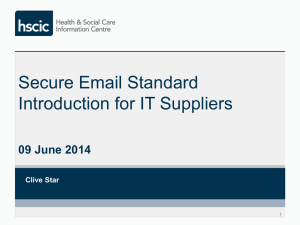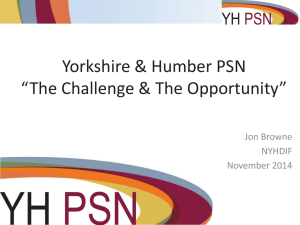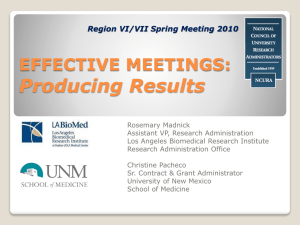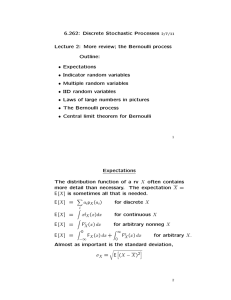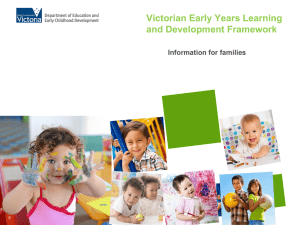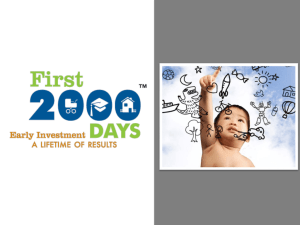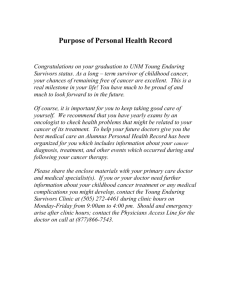Ongoing Assessment - Center for Development and Disability
advertisement
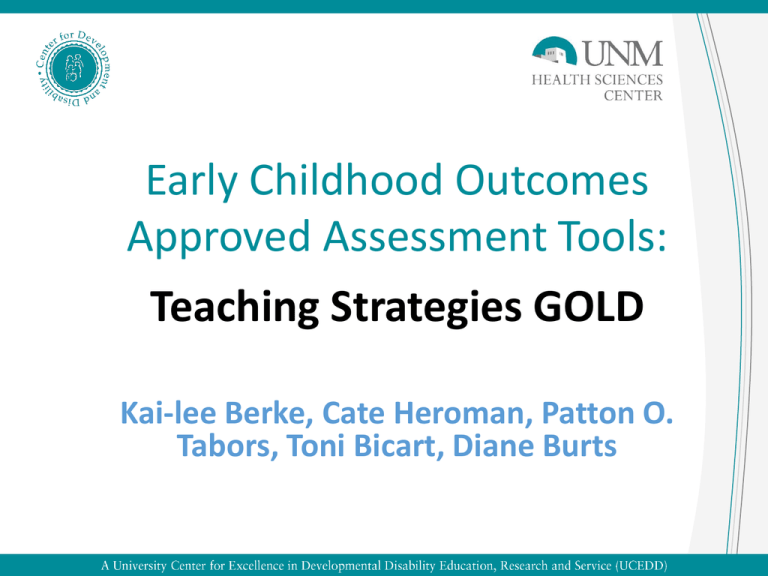
Early Childhood Outcomes Approved Assessment Tools: Teaching Strategies GOLD Kai-lee Berke, Cate Heroman, Patton O. Tabors, Toni Bicart, Diane Burts Website: http://shop.teachingstrategies.com/page/GO LD-assessment-online.cfm#product_overview Introduction • There are 38 objectives that encompass the core of Teaching Strategies GOLD. There are 10 overarching objectives of development and learning • • • • • • • • • • Social Emotional Physical Language Cognitive Literacy Mathematics Science and Technology Social Studies The Arts English language Acquisition Administering Teaching Strategies GOLD: • Who can give the assessment? • Is special training needed? • How long does it take to complete the assessment? Administering Teaching Strategies GOLD cont’d: • How often can it be administered? • What materials are needed? • What environments are required? Early Childhood Outcomes Categories and Teaching Strategies GOLD • Gaining Positive Social Emotional Skills • Learning and Using New Knowledge and Skills • Using Appropriate Behaviors to Meet Their Needs Gaining Positive Social Emotional Skills Domain Assesses the Outcome? Language and Literacy Yes Personal & Social Development Yes Mathematical Thinking No Scientific Thinking No Social Studies No *The Arts Not included in crosswalk Physical Development, Health, and Safety No Learning and Using New Knowledge and Skills Domain Assesses the Outcome? Language and Literacy Yes Personal and Social Development Yes Mathematical Thinking Yes Scientific Thinking Yes Social Studies Yes *The Arts Not included in crosswalk Physical Development, Health, and Safety Yes Using Appropriate Behaviors to Meet Needs Domain Assesses the Outcome? Language and Literacy No Personal and Social Development Yes Mathematical Thinking No Scientific Thinking No Social Studies No *The Arts Not included in crosswalk Physical Development, Health, and Safety Yes Teaching Strategies GOLD Explanation to family of Early Childhood Outcomes Brochure for families to support involvement from PSN website: http://www.cdd.unm.edu/ecln/PSN /ECOTrainingCenter.html Family Role In Assessment Supporting the family members in gaining confidence in their ability to observe their child and share those observations with special education staff. Develop an increased Gain confidence in their ability to observe their child and share those observations with special education staff. understanding of how their child is functioning compared to age expectations. Learn to track and celebrate the progress that their child is making. Contribute to IEP Team discussions about their child’s strengths and accomplishments and the development of appropriate goals. Family Resources: • Home is a learning place http://center.serve.org/TT/partip2.pdf • Reading to kids http://center.serve.org/TT/partip5.pdf • Developmentally Appropriate Practice (DAP) http://center.serve.org/TT/partip13.pdf • School readiness http://center.serve.org/TT/StartingYourChild.pdf Working together to gather information: INCLUDING THE TEAM Family Ongoing Assessment Use most recent assessment information when completing the Child Outcome Summary Form (COSF) Resources Overview of Teaching Strategies GOLD http://www.youtube.com/watch?v=PFs7Ux5zyhw • Linking Curriculum and Assessment using Teaching Strategies GOLD http://www.youtube.com/watch?v=ssQ1-EQ3HII • Early Childhood Technical Assistance Center http://ectacenter.org/eco/pages/crosswalks.asp • Early Childhood Outcomes brochure for families: http://www.cdd.unm.edu/ecln/PSN/ECOTrainingCenter.html For more information contact: Preschool Network (PSN) http://cdd.unm.edu/ecln/PSN/index.html
